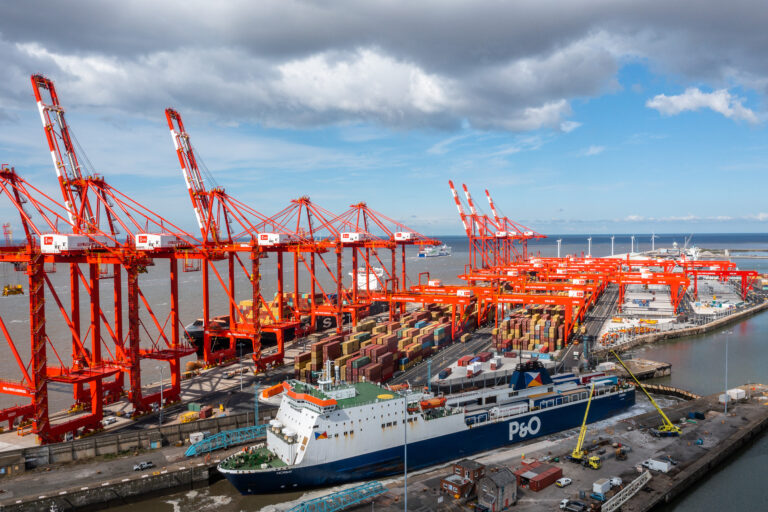Peel Ports Group has committed to becoming a net zero port operator by 2040, 10 years ahead of the UK government’s national decarbonising targets.
The leading port operator, headquartered in Liverpool, owns some of the UK’s largest and most important ports including the Port of Liverpool, Clydeport and London Medway, and is the first major port group to convey such ambitious plans towards tackling climate change.
The group has unveiled a number of initiatives and investments to help drive a more sustainable agenda and reach the net zero milestone by 2040 across all of its locations in the UK and Ireland.
By the end of this year, Peel Ports aims to have 50% of its vehicle fleet replaced with electric cars, with the remainder in place by December 2022, and is currently undergoing trials of greener fuels and electric alternatives for the future of its operational machinery and equipment.
The port operator views investment as being the key to resiliency and has been passionate about developing a sustainable future for the supply chain for many years.
Peel Ports has invested more than £1.2 billion across the past decade on sustainable infrastructure and technology to future proof its operations including the delivery of energy efficient cranes, LED lighting and choosing sustainable, low emission equipment and suppliers.

“Our ports provide critical infrastructure as the UK’s gateways for food, medical, energy and fuel supplies,” commented Mark Whitworth, CEO of Peel Ports. “It is therefore important that as a responsible business we incite positive change in the UK’s logistics market to tackle climate change.”
The port operator is also promoting the benefits of ports closer to the end destination, in order to reduce emissions, as well as introducing major new rail services for better connectivity, taking tonnes of freight off the road.
It will also continue to support the changing energy markets with both offshore and onshore wind sites available across its various locations.
Furthermore, in order to future-proof its carbon neutral needs, the group has also created an Innovation Forum which seeks to answer some of the biggest questions around the reduction of emissions. The forum tracks down answers from universities, entrepreneurs and start-ups, which in turn pitch their ideas and solutions. The best of these can be deployed at scale with the necessary investment from the business.







